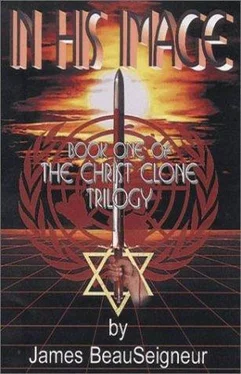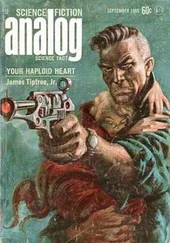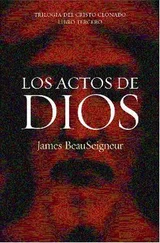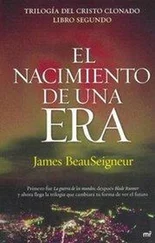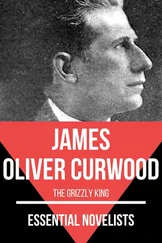"That was the scene approximately one hour ago," the network commentator said, his voice registering his horror, "as two atomic blasts, set off by the Pakistani Guard, rocked the Indian subcontinent. It is believed that the action came in response to the successful interdiction of weapons into Pakistan from China and a new ultimatum issued by General Brooks, commander of U.N. forces in the region. According to sources close to the Pakistani Guard, leaders of the Guard were convinced that U.N. special forces were close to locating the bombs, which would have left little to prevent India from invading Pakistan.
"Within minutes of the explosions the Pakistani government strongly condemned the action by the Guard who, they repeated, are rogue forces not associated with the Pakistani government. But by then India had already retaliated, launching two nuclear-tipped missiles on Pakistan. Apparently prepared for such a response from India, China immediately launched interceptors which successfully brought down the Indian missiles before they could reach their targets.
"Prior to that launch, China had attempted to maintain a neutral position in the long-running conflict between its neighbors. That neutrality was frequently called into question, however, because of the Chinese arms merchants who served as the main source of arms for Pakistan."
As Christopher, Decker, and Milner watched, new information poured in at an incredible rate. In a matter of only a few hours, the entire war was unfolding. In response to China's action, India launched a conventional attack on the Chinese interceptor bases, while simultaneously launching five additional missiles on Pakistan. Three were intercepted; two reached their targets.
Pakistan then responded to India's attack by launching a volley of its own nuclear weapons and within minutes the Pakistani Guard set off the remaining seven bombs they had planted in Indian cities.
In a temporary lull in the action, the scene on television switched to a satellite feed from a camera mounted on the top of a remotely-controlled all-terrain rover, which showed the first horrifying scenes from the suburban areas of New Delhi. Fire was everywhere. Rubble filled the streets. The sky was filled with thick black smoke from the fires and radioactive fallout, which blocked out the setting sun as though it were covered by a loosely-woven black cloth. Scattered around the landscape were hundreds of people, dead and dying. Immediately in front of the vehicle, the mostly nude body of a young Indian woman lay sprawled in the street. All but a few scraps of her clothing had been burned away. On the less charred parts of her body, where some skin remained, the flowered pattern of the sari she had been wearing was seared into her flesh like a tattoo.
Sitting on the street beside the woman's body, a startled young girl, three or four years old, looked up at the rover and began screaming. The bombs had not been so merciful to her as to her mother; she might languish two or three days before life fully released its grip on her. For a moment the camera dwelled on her, her skin covered with numerous open blisters.
Christopher turned away from the screen. "I could have prevented this," he said. It took a moment for the statement to sink through the horror and register with Decker.
"Christopher, there's nothing you could have done," Decker answered. "It's useless to blame yourself."
"But there is something I could have done. I told you before we left New York that I felt Moore was going to do something which would lead to catastrophe, and that there was nothing I could do to stop it. But it wasn't true. There was one thing I could have done. And now, because I hesitated, millions have been killed and millions more will die. Even after the war is over there will be untold deaths from fallout and radiation poisoning. And unless the U.N. acts to provide immediate relief, millions more will die of starvation and disease."
"But it's crazy to blame yourself for this. If this is the result of something Moore did, then the responsibility rests with him alone."
"Oh, the responsibility does indeed rest with Moore. It was he who put General Brooks back in control, and it was he who directed Brooks to issue the two ultimatums. With the first, Moore was hoping to bring the war to a quick close in India's favor. In return, he expected to gain Nikhil Gandhi's support for his bid to become Secretary-General. With the second ultimatum, Moore believed he could force the hand of the Pakistani Guard. General Brooks assured him that the Guard didn't really have nuclear devices planted in India, but Moore knew the risk he was taking. If there were no bombs, then the ultimatum would call the Pakistani Guard's bluff. On the other hand, if the threat was real, he knew that a war would destabilize India to the point that Gandhi would likely return to rebuild India and Rajiv Advani would replace him as Primary on the Security Council. Either way, he calculated that he would benefit."
"Are you sure about all this?" Decker asked, unable to believe that Moore would sacrifice so many people to become Secretary-General.
"I am," Christopher answered.
"Christopher is correct," Milner said with certainty.
"Moore is also responsible for the murder of Ambassador Lee," Christopher added. "And he is planning the assassination of Yuri Kruszkegin. There is nothing he will not do to achieve his goals. I must stop him now, before he can do any more."
"Why didn't Moore just kill Gandhi, instead of risking the lives of so many?" Decker asked, still struggling to believe the magnitude of Moore's malevolence.
"The death of Ambassador Lee was believed to be an accident," Milner answered. "If Kruszkegin died, most would assume it was coincidence. But no one would believe that the death of three Primary members was just a fluke, especially if soon after that Moore became Secretary-General precisely because of the replacement of those three members. Besides, killing Gandhi would still leave him the problems in India and Pakistan to deal with as Secretary-General – better to try to end the war quickly in India's favor and ingratiate himself to Gandhi, rather than bring suspicion on himself with three untimely deaths."
"What are you going to do?" Decker asked Christopher.
"In the third chapter of Ecclesiastes," Christopher answered, "King Solomon wrote, 'There is a time for everything: a time to be born and a time to die; a time to plant and a time to reap; a time to heal and a time to kill.'"
Decker looked back and forth from Christopher to Milner and then back to the television screen. As the camera panned the devastation, in the distance, where the smoke and radioactive cloud had not yet entirely shrouded the earth, the moon rose above the horizon, glowing blood red through the desecrated sky.
It was another two hours before their plane landed in New York. From there they went directly to the United Nations, where the Security Council was meeting in closed session. As night had fallen in the east, the war continued to spread. Nuclear warheads dropped like overripe fruit, appearing as falling stars in the night sky. The destruction spread six hundred miles into China and to the south nearly as far as Hyderabad, India. West and north of Pakistan, the people of Afghanistan, southeastern Iran, and southern Tajikstan gathered their families and all they could carry on their backs, and beat a hurried path away from the war. In just days the local weather patterns would fill their fields, rivers, and streams with toxic fallout.
Pakistan was little more than an open grave. India's arsenal was completely spent. What was left of its army survived in small clusters that were cut off from all command and control. Most would die soon from radiation. China was the only participant still in control of its military and it had no interest in going any further with the war. In the few hours it had taken them to fly from Israel and arrive at the U.N., the war had begun and ended. The final estimate of the number killed would exceed four hundred and twenty million. There were no winners.
Читать дальше
